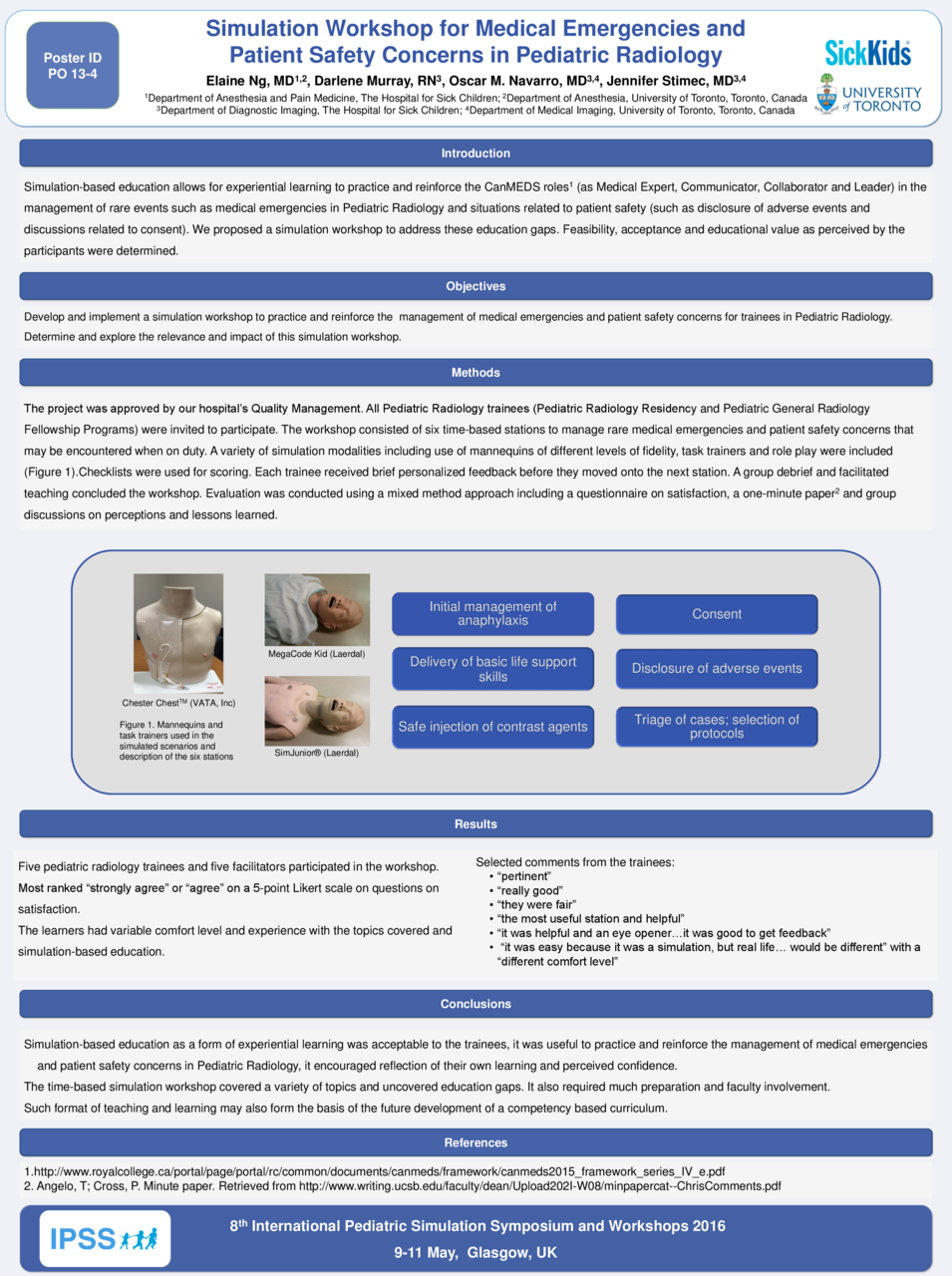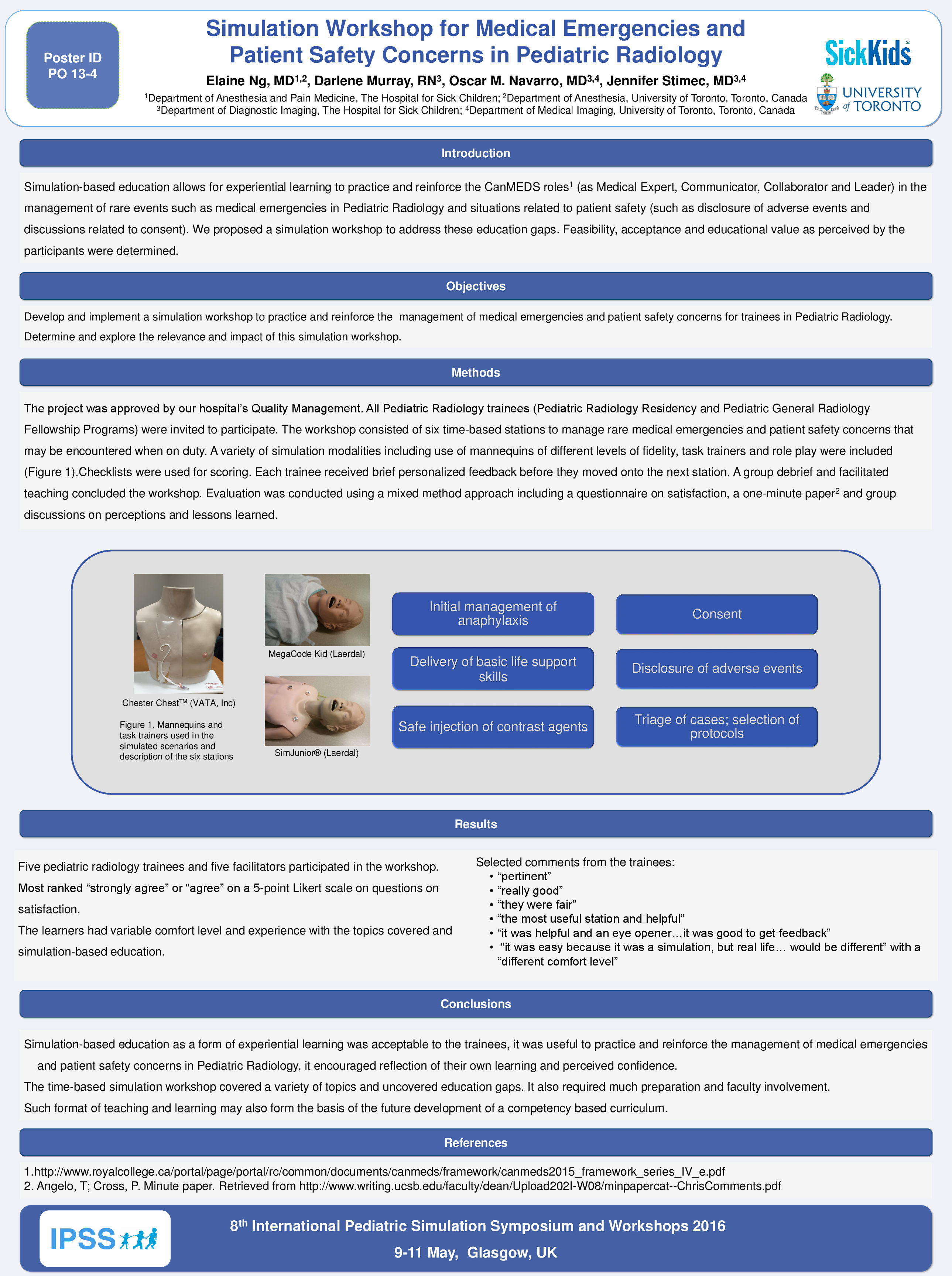Abstract
Introduction
Simulation-based education allows for experiential learning to practice and reinforce the CanMEDS roles1 (as Medical Expert, Communicator, Collaborator and Leader) in the management of rare events such as medical emergencies in Pediatric Radiology and situations related to patient safety (such as disclosure of adverse events and discussions related to consent). We proposed a simulation workshop to address these education gaps. Feasibility, acceptance and educational value as perceived by the participants were determined.
The objectives were two-fold:
- Develop and implement a simulation workshop to practice and reinforce the management of medical emergencies and patient safety concerns for trainees in Pediatric Radiology.
- Determine and explore the relevance and impact of this simulation workshop.
Methods
The project was approved by our hospital’s Quality Management. All Pediatric Radiology trainees (Pediatric Radiology Residency and Pediatric General Radiology Fellowship Programs) were invited to participate. The workshop consisted of six time-based stations to manage rare medical emergencies and patient safety concerns that may be encountered when on duty. A variety of simulation modalities including use of mannequins of different levels of fidelity, task trainers and role play were included. Checklists were used for scoring. Each trainee received brief personalized feedback before they moved onto the next station. A group debrief and facilitated teaching concluded the workshop. Evaluation was conducted using a mixed method approach including a questionnaire on satisfaction, a one-minute paper2 and group discussions on perceptions and lessons learned.
Results
Five pediatric radiology trainees and five facilitators participated in the workshop. Most ranked “strongly agree” or “agree” on a 5-point Likert scale on questions on satisfaction. The learners had variable comfort level and experience with the topics covered and simulation-based education.
Selected comments from the trainees: “pertinent”, “really good”, “they were fair” , “the most useful station and helpful” , “it was helpful and an eye opener…it was good to get feedback”, “it was easy because it was a simulation, but real life… would be different” with a “different comfort level”.
Conclusions
Simulation-based education as a form of experiential learning was acceptable to the trainees, it was useful to practice and reinforce the management of medical emergencies and patient safety concerns in Pediatric Radiology, it encouraged reflection of their own learning and perceived confidence. The time-based simulation workshop covered a variety of topics and uncovered education gaps. It also required much preparation and faculty involvement. Such format of teaching and learning may also form the basis of the future development of a competency based curriculum.
References
1.http://www.royalcollege.ca/portal/page/portal/rc/common/documents/canmeds/framework/canmeds2015_framework_series_IV_e.pdf
2. Angelo, T; Cross, P. Minute paper. Retrieved from http://www.writing.ucsb.edu/faculty/dean/Upload202I-W08/minpapercat--ChrisComments.pdf






